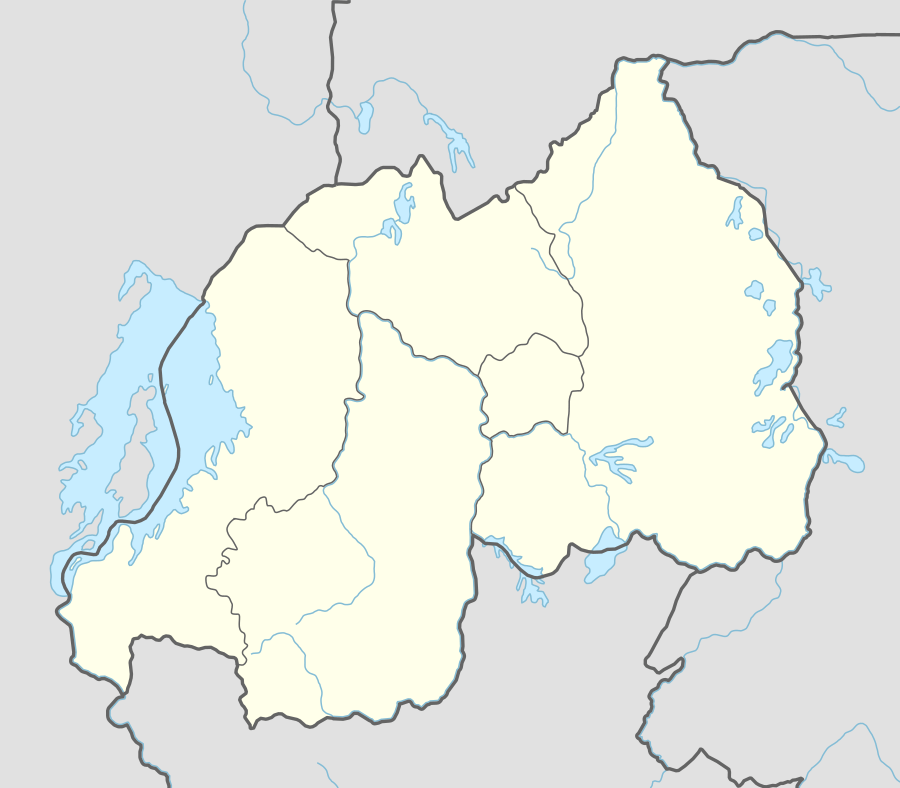Ndora
Ndora is a village and commune/sector[1][2] in Butare Province, south-western Rwanda, located roughly 10 kilometres east of the city of Butare. It is a farming community inhabited mainly by Hutu people.[2] Pauline Nyiramasuhuko was born in Ndora in 1946.[3] Callixte Kalimanzira, head of the Ministry of Interior and Communal Development, met in Ndora on June 7, 1994 and warned the people that the Rwandan Patriotic Front (RPF) were using small children who should also become targets.[4] There is said to be an iron-smelting furnace in Ndora.[5][6] A number of Hutu women in the village were widowed during the Rwandan genocide.[2]
Ndora | |
|---|---|
Village | |
 Ndora Location in Rwanda | |
| Coordinates: 2°36′12″S 29°50′1″E | |
| Country | |
| Province | Butare Province |
| District | Gisagara District |
| Area | |
| • Total | 61 km2 (24 sq mi) |
| Elevation | 1,684 m (5,525 ft) |
| Population (2012 census) | |
| • Total | 23,813 |
| • Density | 390/km2 (1,000/sq mi) |
| Time zone | UTC+2 (CAT) |
References
- African Rights (Organization) (2000). Witness to genocide. African Rights. Retrieved 27 June 2011.
- African Rights (Organization) (1995). Rwanda, not so innocent: when women become killers. African Rights. p. 35. ISBN 978-1-899477-05-0. Retrieved 27 June 2011.
- Sjoberg, Laura; Gentry, Caron E. (2007). Mothers, monsters, whores: women's violence in global politics. Zed Books. p. 160. ISBN 978-1-84277-866-1. Retrieved 27 June 2011.
- Lasting Wounds. Human Rights Watch. p. 7. Retrieved 27 June 2011.
- Briggs, Philip; Booth, Janice (1 November 2006). Rwanda, 3rd: The Bradt Travel Guide. Bradt Travel Guides. p. 6. ISBN 978-1-84162-180-7. Retrieved 27 June 2011.
- Fage, J. D. (1975). The Cambridge History of Africa: From c. 500 B.C. to A.D. 1050. Cambridge University Press. p. 367. ISBN 978-0-521-21592-3. Retrieved 27 June 2011.
This article is issued from Wikipedia. The text is licensed under Creative Commons - Attribution - Sharealike. Additional terms may apply for the media files.